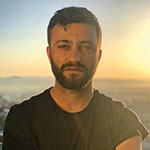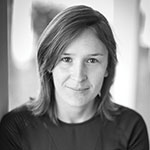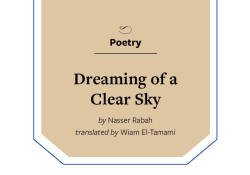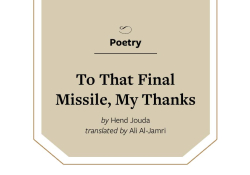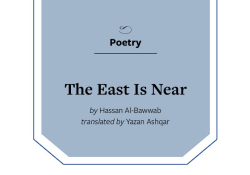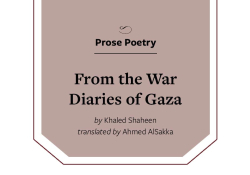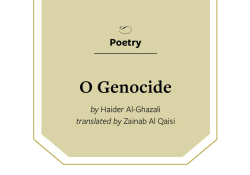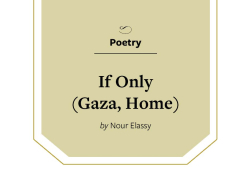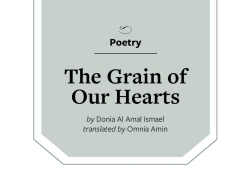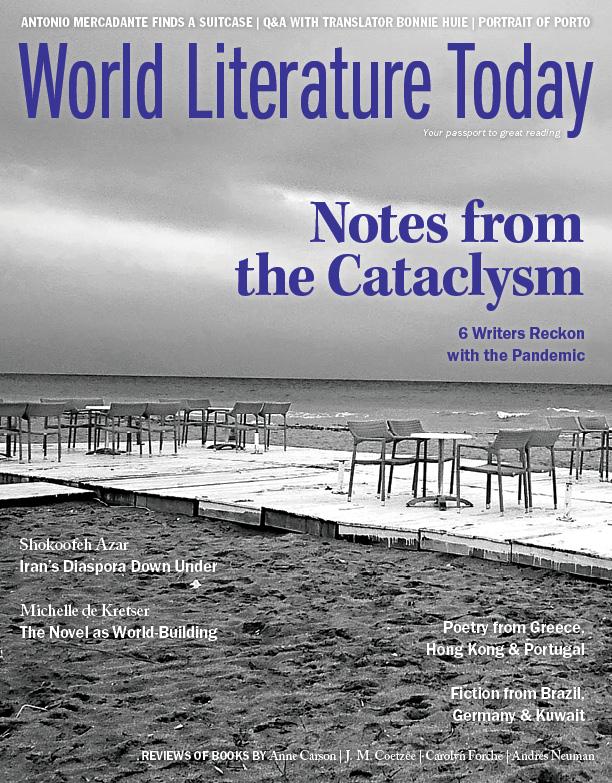Hands
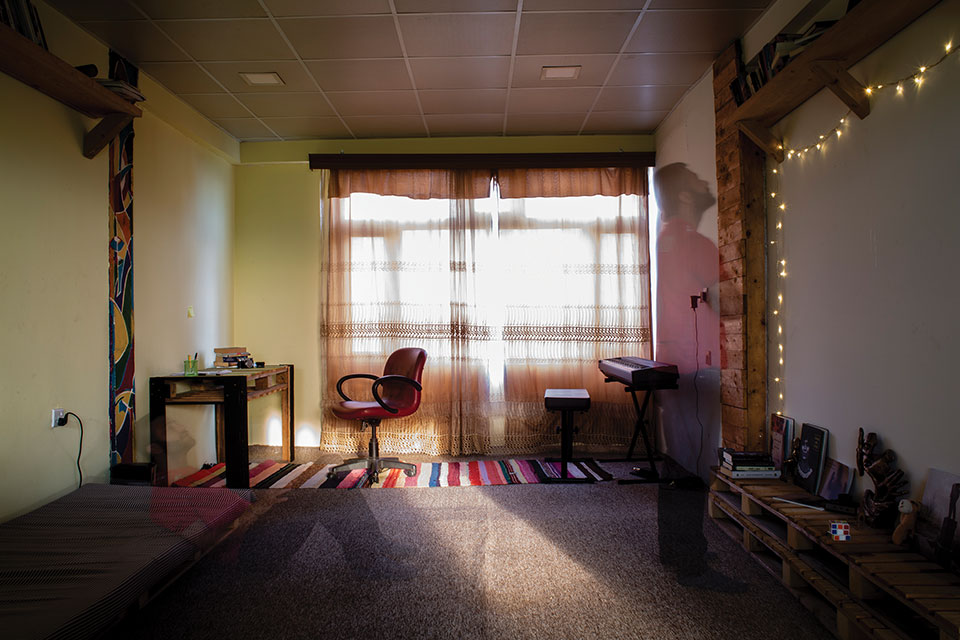
THE MORTAR LANDED close, maybe two hundred meters away. Then, I saw only black smoke filling the sky. Till that moment, I had never seen smoke so big. As if fire gripped the world, as if no sea, not even all the world’s oceans, would put out the fire. I was only nine years old. Even in the days of Saddam’s bombarding, I was not so scared. Really, I don’t know which scared me more: the mortar’s voice or the vast black smoke. I grabbed my mother’s hands. I grabbed my mother’s hands so tight that after a few seconds, sweat ran between our hands. Ah, God, your burdens, how important those hands were in that precise moment. Though life had wearied, even exhausted my mother’s hands. Though her hands were no longer so tender, so virgin, she could write a love letter. Though those hands would never again hold rose stems or rescue the cats neighborhood men tried to stone. Though my mother’s hands could no longer reach a man’s face or the falling hair of a black-eyed boy, believe this: those hands were always my only protection in the face of fear and misery. If not for my mother’s hands, I’d have spent childhood uncertain, peeing myself, always the small fry. I’m not lying: if not for those hands I couldn’t have grown up, I couldn’t now bring all these images home. I couldn’t capture images of Mosul’s children who like me in my childhood years just need a hand to hold. Any hand. You know, there were moments photographing the war when I even reached for the hand of a soldier serving Daesh. You don’t know, but let me tell you: when death or the fear of death nears, a hand becomes your dearest friend—it dispels fear. It does’t matter whose hand or where. I swear on my grandmother’s grave, if there is a hand for me to hold, I won’t ever fear a thing, even those bears that can devour a man in minutes.

As I grew up, I saw hands of all kinds. Thieving hands. Hands that held within themselves storms of bullets for children, for women. Hands wringing a chicken’s neck. Hands that played a big part in the killing of a teenage girl, hands that excused the killing with the letters she wrote to her intended. Some at their wives’ throats, nearly suffocating them for their betrayals. There have been hands that had their role in civil war, that killed journalists, that withheld salaries from peshmerga. Hands that protested and some that cut household electricity. Hands that waged world war, but also hands that help the blind cross a street. Some have overthrown dictators. I have known hands that wrote a world of poems for women. Let’s not get too far from the hands of Sherko Bekas that kept hundreds of women from being killed. And why not speak of Beethoven’s hands that kept introducing us to sound itself? Don’t think less, dear readers, of the hands of prostitutes, you don’t know how many lonely men have they have sustained through loneliness, past suicide. There are faraway hands in Vietnam that capture images that make me in Kurdistan think, like the photographer Don McCullin. There are hands in the Arab expanses, like Adonis’, that write, and here I use their writing for love letters. I tell you: hands matter. Take me: so my heart is eternally broken, but I can hold a girl’s hand, so I don’t care. Since hands exist, you have had hope. Since they exist, there has been a savior. Since they exist, there has been help and love, but what can I say? As I write this letter, hands have lost their meaning. A plague inside us wants us to look down on our hands. A plague so jealous, so uncultured, it wants to tell us our hands are our greatest enemy. It wants to kill our hands. The plague then wants not a finger more to reach our lovers’ lips. To comb a person’s hair. To comfort the heads of poor, homeless children. It comes in the name of loyalty and tells us: if you forget your hands then you’ll live as long as you want, you’ll be healthy as long as you want. It comes to tell us: don’t be fooled into believing your hands can save your head from an itch. Don’t fall for it if your hand tells you it can water the houseplants. Don’t be fooled into taking your toddling daughter’s hand and taking her to the park for a walk. That hand will kill you. The hand is the plague, the hand is what brought me here.
Translation from the Kurdish
